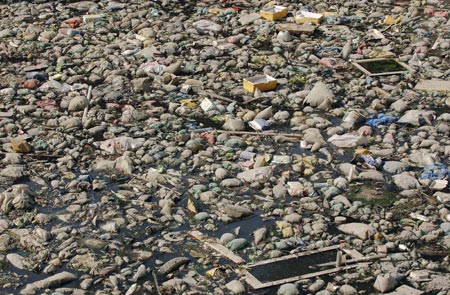Report: Farmland is polluted
(China Daily)Updated: 2006-11-11 08:45
At least 10 million hectares of cultivated land in China are polluted, which poses a grave threat to the country's food safety, the Xinhua News Agency reported on Friday.
|
|
The polluted land, which is mostly in economically developed areas, accounts for one-tenth of the country's total arable land, according to an incomplete survey by the State Environmental Protection Administration, China's top environment watchdog.
Pollution on cultivated land threatens the environment, food safety and the sustainable development of agriculture, the administration said.
The report said the status quo of arable land pollution is "rather grave."
Because of chronic, excessive use of chemical fertilizer, pesticide and agricultural plastic sheeting, as well as irrigation using polluted water, a large amount of contaminants remain in the cultivated land.
The contaminants affect the soil's ecological structure and function, leading to decreased soil productivity, lower crop yield, and lower quality of agricultural products.
It also leads to worse water quality in rural areas.
Less than 9 per cent of drinkable water passed checks for bacteria in 243 rural water supply stations across the country.
Another survey, which took samples of drinking water and groundwater at 69 small towns in Beijing, Tianjin and Hebei Province of North China, showed that more than half of the water contains excessive nitrate, which may cause diabetes and damage the kidney.
The administration estimated at least 190 million farmers are drinking water that contains harmful substances.
Many villagers drink unfiltered water taken from shallow water wells or water cellars, which are reported to have poor sanitary conditions.
|
||
|
||
|
|

